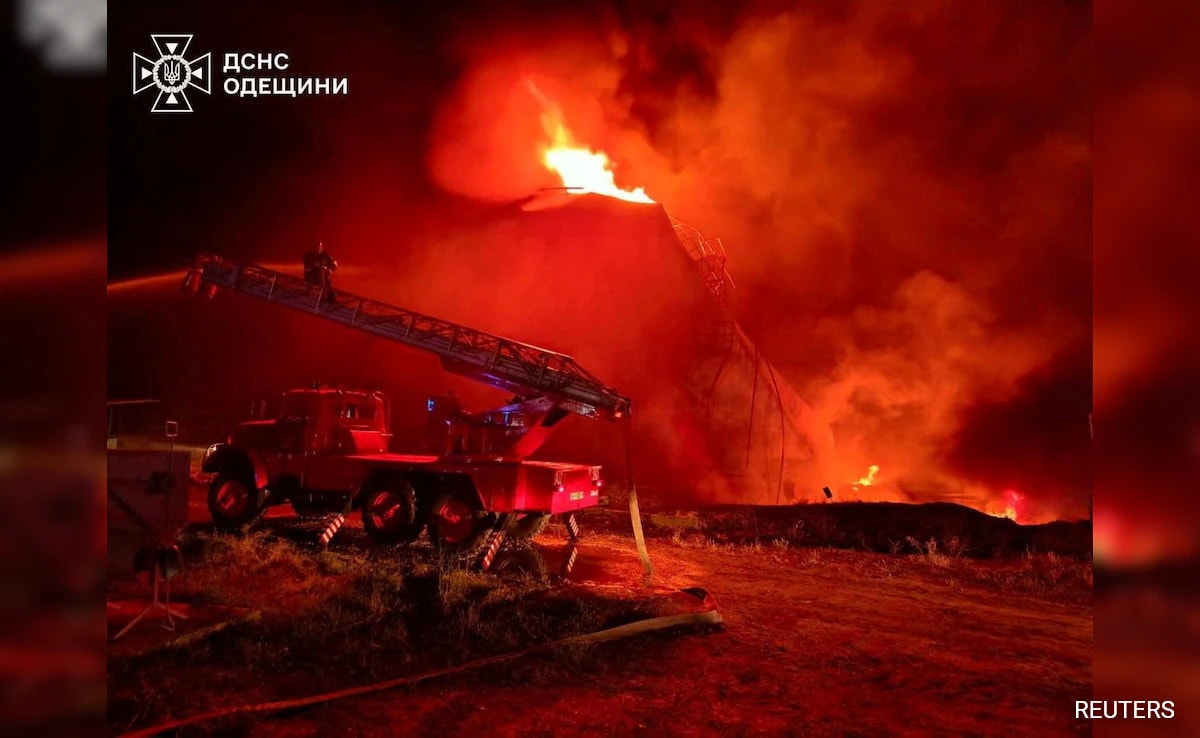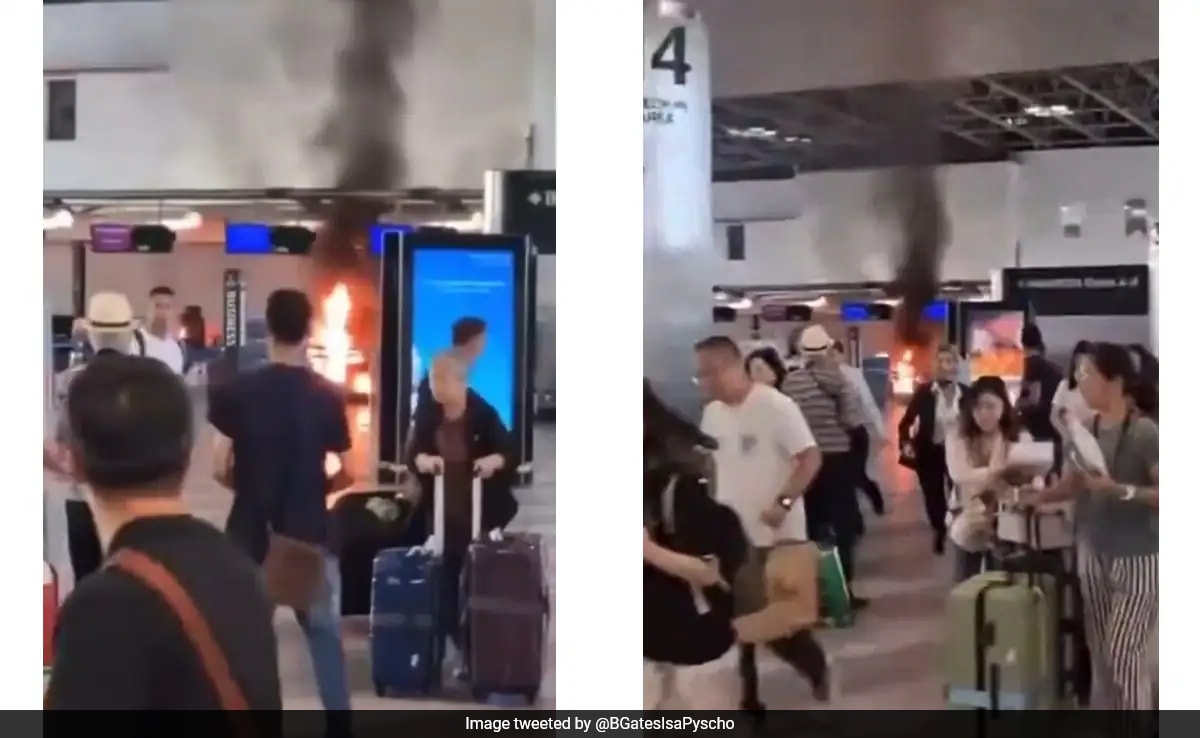The protest unfolded a day after the Taliban declared victory over the last holdout resistance force and consolidated its control over the country, even as small demonstrations, particularly by women, erupted in cities. Taliban spokesman Zabihullah Mujahid said Tuesday after the protest was dispersed that demonstrations would not be allowed during this time.
Hundreds of men and women marched through several neighborhoods in Kabul calling for freedom and expressing support for the anti-Taliban forces in the recently captured Panjshir Valley. For much of the march, Taliban fighters escorted the protest — until the demonstrators neared the Presidential Palace and the firing began.
Here’s what to know
“We were attacked by Taliban, they opened fire, some of the protesters were detained. Journalists were stopped from filming and covering the rally,” Maryam, an activist, texted from Kabul. She also said a Taliban vehicle plowed into the crowd.
Maryam, who spoke on the condition that only her first name be used for security reasons, said the rally in Kabul was against foreign interference in Afghanistan, particularly by Pakistan, which is widely seen as a backer of the Taliban. Online videos showed people running for cover amid gunfire, and there were reports of women detained.
Maryam added that Taliban members deleted photos and videos of the protests from phones of people they seized. A cameraman for Afghanistan’s Tolo News was briefly detained by the Taliban, according to the station’s owner, Saad Mohseni. “The Taliban have always insisted that they will respect freedom of expression and the media’s right to cover events … and now this,” he tweeted.
“People were different today,” said one protester and employee of the former Afghan government, who like others spoke on the condition of anonymity for fear of reprisal. Many of the protesters “were afraid, but they pushed forward anyway.”
Following the demonstration, Mujahid said demonstrations were not allowed during this tenuous period they wouldn’t “let people use the current situation to cause trouble.”
He added that some Taliban fighters “don’t have enough experience to deal with demonstrations, so I hope this will be left to the future.”
On Monday, women also marched through the northern city of Mazar-e Sharif. The demonstrators dispersed only when the protest threatened to turn violent, with Taliban fighters growing agitated. One witness said two police vehicles intentionally drove toward the marchers.
“We were afraid. But at least, we demanded our rights,” said Karima Shujazada, a 26-year-old protester in Mazar-e Sharif who helped organize a march to the provincial governor’s office and around the city.
Women’s rights protests have also taken place in recent days in Herat and Kabul. Women also took to the streets of Zaranj, near the border with Iran, to demand respect for civil liberties. The Taliban on Saturday violently suppressed a march in Kabul, although a spokesman for the group later told the Guardian newspaper that the Taliban detained four men who allegedly struck women at that demonstration.
Across Afghanistan, a generation of girls has grown up in a world completely different from the one their parents knew. When it last ruled from 1996 to 2001, the Taliban banned girls from school and women from the workplace. While the Islamist militants have pledged to govern more moderately, many Afghans remain deeply skeptical of such promises.
As university classes resumed across Afghanistan this week for the first time since the Taliban takeover, some institutions imposed gender segregation and divided classrooms with curtains or boards.
“I really felt terrible when I entered the class. … We are gradually going back to 20 years ago,” a female student at Kabul University told Reuters.
The Taliban’s actions are being closely watched from abroad, with Western governments signaling that the resumption of most aid will be contingent on whether Afghanistan’s new rulers respect basic human rights.
At a recent news conference, Taliban spokesman Mujahid promised that women would eventually be “asked to return” to their jobs. Mujahid also told reporters that the Taliban would announce an “inclusive” new government “within days,” although he did not offer any details.
Ahmad Massoud, the leader of the last pocket of resistance forces in the Panjshir region, on Monday called for a national uprising against the Taliban, saying “it has become even more brutal, radicalized, hateful and fanatic.”
The Taliban said Monday it had seized the mountainous province from forces led by Massoud.
A senior resistance official said that while the Taliban has taken control of the Panjshir Valley, resistance forces have retreated into the mountains to fight the Islamist militants. The person, who spoke on the condition of anonymity due to the sensitivity of the situation, said that some families who live in the valley have fled for the relative safety of Kabul and other provinces.
The humanitarian situation in Afghanistan is becoming increasingly dire. A World Health Organization official said Monday that hundreds of medical facilities are at risk of imminent closure because the Western donors who finance them are barred from dealing with the new Taliban government, according to Reuters.
One of the key ways that any aid will get into the country will be via the Kabul airport, which Qatar and Turkey have offered to help run, although an agreement remains elusive.
Turkish Foreign Minister Mevlut Cavusoglu said Tuesday that an “advance team” of 19 Turkish technicians was working at the airport, along with “teams” from Qatar. Turkey has for months offered to run the airport after the departure of U.S. troops from Afghanistan, but it has differed with the Taliban — which objects to the presence of foreign troops in the country — over how security would be provided at the facility. Cavusoglu, speaking during an interview on the NTV news channel, said the Taliban could provide security outside the airport, “but inside it should be a security company or a state or two that the international community can trust.”
Qatar’s foreign minister, Mohammed bin Abdulrahman al-Thani, said Doha hopes that the Kabul airport can reopen in the next few days. “We have highlighted that there are certain security standards if we want to board passengers. … If we can agree on the security measures with the Taliban, then things will be easier,” he said. “We are starting the humanitarian aid flights as a test.”
Amid the uncertainty, U.S. officials are under pressure to find ways to help evacuate remaining American citizens and at-risk Afghans from the country. In Mazar-e Sharif, several planes chartered to evacuate people have been unable to leave the country for days amid conflicting accounts on why they are being held up.
An Afghan official at the airport told the Associated Press that those seeking to leave were Afghans, many of whom did not have passports or visas. But Sen. Richard Blumenthal (D-Conn.) said at least two planes were waiting in the city to take American citizens, at-risk Afghan allies and their families to safety in Qatar.
Asked about that at a news conference in Doha, Blinken said the United States was making efforts to ensure that charter flights can fly out of Afghanistan safely. Washington estimates that nearly 100 U.S. citizens remain in Afghanistan, including dual nationals, he said.
Blinken said the Taliban has agreed to allow anyone to leave as long as they have valid documentation, and he said he is unaware of any “hostage-type” situation.
“It’s my understanding that the Taliban has not denied exit to anyone holding a valid document, but they have said those without valid documents, at this point, can’t leave,” Blinken said.
The State Department helped four U.S. citizens leave Afghanistan overland on Monday, a senior department official said, marking the first such evacuation it has facilitated since the U.S. military withdrew from Afghanistan last week.
Khan reported from Peshawar, Pakistan, Pannett from Sydney and Mehrdad from Doha. John Hudson in Doha, Zeynep Karatas in Istanbul and Ellen Francis in London contributed to this report.
.png)











 English (United States) ·
English (United States) ·  Turkish (Turkey) ·
Turkish (Turkey) ·